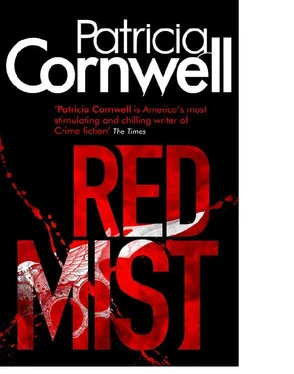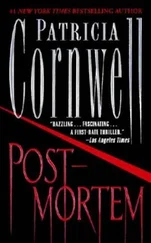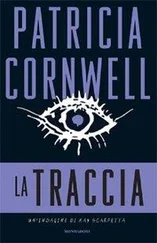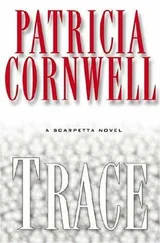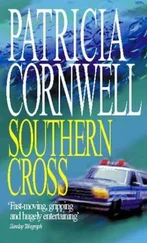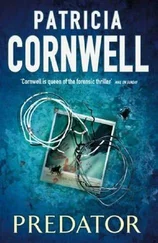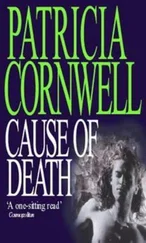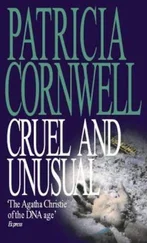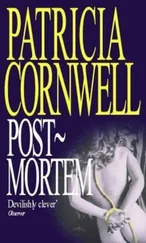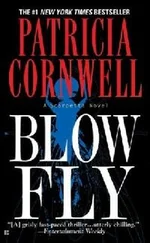“Why not sell them?” I ask. “Wouldn’t they be worth something to a collector? Or maybe that’s where they came from. Maybe they were recently purchased from a collector, a stamp company. No lint, dust, dirt, nothing stuck on the back, not wrinkled or grungy like they might be if they’d been in a drawer for decades. And allegedly sent by me in a counterfeit CFC envelope that included a forged letter on my counterfeit letterhead? Possibly, maybe? She seemed to think I’d been generous with her when I hadn’t been. A big envelope allegedly from me, and extra postage. Something else in it. Maybe stamps.” Lucy finally gives me her eyes, and I can see what’s in them. A deeper green, and they are immeasurably sad and glinting with anger.
“I’m sorry,” I say to her, because of how dreadful it is to imagine Jaime’s death the way I just described it.
“What kind of stamps?” she asks. “Tell me exactly what they looked like.”
I tell her what I found in Kathleen Lawler’s prison cell, tucked inside a locker at the base of her steel bed, a single pane of ten fifteen-cent postage stamps issued in an earlier era when glue on the back of them, and on labels and envelope flaps, had to be licked or moistened with a sponge. I describe the letter to Kathleen that I didn’t write and the strange party stationery that she couldn’t have gotten from the commissary. Someone sent her stamps and stationery, and it very well may have been me or, more precisely, someone impersonating me.
Then the stamp is on the computer screen. A wide white beach with sprigs of grass, and an umbrella with red and yellow panels is propped against a dune beneath a seagull flying through the cloudless sky over bright blue water.
It is midnight, and we are picking at a dinner that Benton has managed to overcook and wilt, but no one is particular at the moment or preoccupied with food, at least not in a good way. Right now I can easily imagine not wanting to eat ever again, as everything I look at turns into a potential source of disease and death.
Bolognese sauce, lettuce, salad dressing, even the wine, and I’m reminded that a peaceful, healthy coexistence on this planet is shockingly fragile. It takes so little to cause disaster. Shifting tectonic plates in the earth that create a tsunami, clashing temperatures and humidity unleashing hurricanes and tornadoes, and worst of all is what humans can do.
Colin Dengate e-mailed me about an hour ago with information he probably shouldn’t be releasing to me, but that’s who he is, a redneck, as he describes himself. Armed and dangerous, he likes to say, roaring around in that ancient Land Rover of his in the blistering heat and afraid of nothing, including bureaucrats, or bureausaurs, as he calls people who let policies, politics, and phobias get in the way of doing what is right. He’s not going to shut me out of any investigation, certainly not when efforts to frame me are blatant enough to bury any reasonable doubt that I’m the one running around poisoning people.
Colin let me know that Jaime died in good health, just as Kathleen Lawler did. There was nothing on gross examination to show what caused Jaime’s death, but her gastric contents were undigested, including pinkish, reddish, and white tablets or pills that he and I suspect are ranitidine, Sudafed, and Benadryl. He explained that Sammy Chang passed along lab results that probably don’t mean anything unless it’s possible Kathleen died of heavy metal poisoning, and Colin certainly doesn’t think so, and he’s right, she didn’t. Specifically, he wanted to know if trace elements of magnesium, iron, and sodium might hold any special meaning for me.
“I understand that.” Benton paces back and forth past windows overlooking the Savannah River, lights scattered along the opposite shore, where shipyard cranes are etched faintly against the distant dark sky. “But what you need to understand is the following. They could be deadly poisonous,” he is saying to Special Agent Douglas Burke from the FBI’s Boston field office.
I can tell from what I’m overhearing that Douglas Burke, a member of the task force that has been working the Mensa Murders, is resistant to answering Benton’s questions beyond confirming the statement that Massachusetts General Hospital has released to the media. Dawn Kincaid has botulism. She remains on life support, and her brain is no longer viable. Benton has asked point-blank if fifteen-cent postage stamps featuring a beach umbrella might have turned up inside her cell at Butler.
“She got hold of the toxin somehow,” he pushes. “Poisoned, in other words, unless she got it from Butler’s food, which I seriously doubt. Anybody else at Butler with botulism? … Exactly. The glue on the stamps could be the source of the exposure.”
“That was pretty good, but no offense to Benton, he should stay out of the kitchen.” Marino pushes away his bowl of unfinished Bolognese sauce without pasta, which turned out gummy. “The Botox Diet. All you got to do is think about botulism. That will make you lose weight. Doris used to do her own canning,” he adds, talking about his ex-wife. “Creeps me out to think about it now. You can get it from honey, you know.”
“Mostly that’s a risk for infants,” I reply distractedly, as I listen to Benton’s conversation. “They don’t have the robust immune systems adults do. I think you’re fine to eat honey.”
“Nope. I stay away from sugar, fake sugar, and I sure as hell don’t want honey or home canning or maybe salad bars, either.”
“You can get the stuff for like twenty bucks a vial from China.” Lucy has her MacBook on the dining-room table, typing with one hand as she eats a piece of bread with the other. “Fake name, fake e-mail account, and you don’t have to be a doctor or work in a lab. Order what you want from the privacy of your own home. I could do it as I sit here. I’m surprised something like this hasn’t happened before now.”
“Thank God it hasn’t.” I begin to clear the dishes while I continue to debate whether I should call General Briggs.
“The most potent poison on the planet, and it shouldn’t be this easy to get,” Lucy says.
“It didn’t used to be,” I reply. “But botulinum toxin type A has become ubiquitous since its introduction into the treatment of numerous medical conditions. Not just cosmetic procedures but migraine headaches, facial tics and other types of spasms, hypersalivation — drooling, in other words — crossed eyes, involuntary muscle contractions, sweaty palms.”
“How much of it would you have to use, saying you could order vials of it off the Internet?” Glass clanks as Marino drops empty bottles in the recycle bag inside the kitchenette, where he’s followed me.
“It comes in a crystalline form, a white powder, vacuum-dried Clostridium botulinum type A, that you reconstitute.” I turn on the water in the sink and wait for it to get hot.
“Then you just inject it in a package of food, for example,” Marino says. “Or a take-out container.”
“Very simple. Frighteningly so.”
“So if you got hold of enough of it, you could wipe out thousands of people.” Marino finds a dish towel and begins to dry as I wash.
“If you tampered with some product, like a prepackaged food or beverages that aren’t heated sufficiently to destroy the toxin, yes,” I reply, and that is what scares me.
“Well, I think you should call Briggs.” He takes a plate from me.
“I know you do,” I reply. “But it’s not that simple.”
“Sure it is. You just friggin’ call him and give him a heads-up.”
“It sets things in motion before we have lab results.” I hand him a wineglass to dry.
“Dawn Kincaid’s got botulism. That’s one lab result.” He opens cabinets and starts putting away dishes. “You ask me, that’s the only confirmation you need when you think of everything else we’re finding out and start putting the pieces together. Like the shit in Kathleen Lawler’s sink that fits with the burns on her foot.”
Читать дальше
